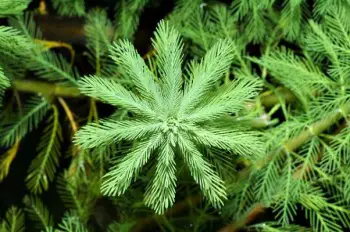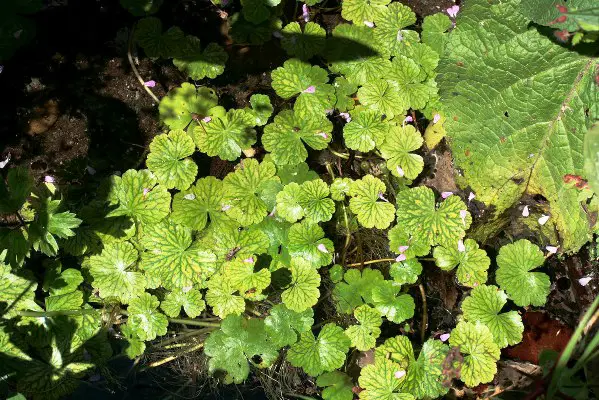Sale of invasive aquatic plants to be banned in UK

Myriophyllum aquaticum, better known as Parrot’s feather, will no longer be legally available in the UK from April 2014. © André Karwath
The sale of five invasive, non-native aquatic plant species is to be banned in the UK in order to protect wildlife and save money, the government has announced.
The UK government claim that such species cost billions to control once they become established in an ecosystem with floating pennywort, Hydrocotyle ranunculoides, able to grow up to 20 cm per day and already costing the British economy more than 20 million per year to control
“Tough laws to curb the sale of these plants could save the country millions of pounds as well as protecting wildlife such as fish and native plants, ” said Environment Minister Richard Benyon, “But as well as saving money and protecting wildlife the ban will also help maintain access to rivers and lakes for anglers and watersport fans.”
The species affected by the ban are Water fern, Azolla filiculoides, Australian swamp stonecrop, Crassula helmsii, Floating pennywort, Hydrocotyle ranunculoides, Parrot’s feather, Myriophyllum aquaticum, and Water primrose, Ludwigia hexapetala.

Floating pennywort, Hydrocotyle ranunculoides, is another species affected by the ban. © Malcolm Storey
These are normally sold for use in ornamental garden ponds and were listed in the Wildlife and Countryside Act 1981, making it illegal to dump them into natural habitats, but this has not proved a sufficient deterrent and they’ve colonised natural, often sensitive, environments throughout much of the country.
The plants are particularly troublesome because they tend to form thick, choking mats which deplete supplies of oxygen, light and nutrients available to native aquatic species which brings about consequential declines in local fish and invertebrate populations.
In the most serious cases they may even reduce boating and angling access and increase the risk of flooding, problems which can cost millions of pounds per year to rectify.
The ban comes into effect from April 2014 and retailers will face a fine of up to £5,000 and possibly up to six months in prison if caught selling the plants after that date, but now have twelve months to conform with the new measures and identify and stock alternative species.
Defra, trade representatives and conservation bodies, have also been working to raise awareness of garden owners and horticulturalists to the dangers of spreading non-native species through the Be Plant Wise campaign and have given widespread support to the ban.
Keith Davenport of the Ornamental and Aquatic trades association said:
“We’ve recommended retailers not to sell these five plant species, in some instances, for at least a decade. So this is welcome news from Defra, making it very clear there is now a ban in place. We will continue to actively encourage our members to support the Be Plant Wise campaign.”
The Wildfowl & Wetlands Trust’s Head of Conservation Policy, Carrie Hume said:
“Thankfully, some of the most destructive non-native plants will no longer be on sale in our garden centres. This is the right move. The environmental and economic cost of dealing with this problem is already huge and dealing with it now is a great saving for the future.”
Recent studies have suggested that almost 3000 non-native species are established in England and close to 1000 in Scotland, of which 65-70 % are plants.
This is the first ban of its kind in the UK but similar legislation exists in countries such as Spain where a number of common aquarium plants are now illegal to trade, and the European Union has its own set of measures in place.
Related links
Category: Aquatic Plants, News | Tags: aquarium, aquascaping, Azolla, DEFRA, garden pond, Hydrocotyle, Ludwigia, Myriophyllum, pennywort | One comment »



February 2nd, 2013 at 8:51 am
[…] Le eco-cronache di tutto il mondo ne parlano ogni giorno. Anche noi del G.A.S. – Gruppo Acquariofilo Salentino abbiamo recentemente affrontato il problema, parlando dell’avvistamento di una Trachemys scripta elegans in un delicato ambiente palustre della nostra provincia come la “palude del Capitano” Altri importanti argomenti sensibili quali il recente divieto di importazione delle ampullarie nel territorio Europeo ed il divieto di importazione a partire dal 2014 di alcune comuni piante dei nostri acquari che hanno infestato ampie aree del territorio Inglese sono argomenti che potrete approfondire visitando il sito https://www.seriouslyfish.com […]